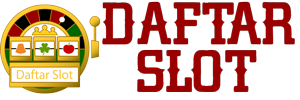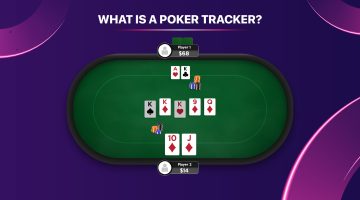
Poker Career Transitions: From Weekend Warrior to Card-Table Pro
The dream is seductive, isn’t it? Ditching the 9-to-5, being your own boss, and turning a beloved hobby into a lucrative poker career. The thrill of a big score, the freedom of setting your own hours… it’s a powerful lure. But the chasm between a winning amateur and a sustainable professional is vast. It’s less a gentle slope and more a sheer cliff face.
Let’s be honest, the journey is brutal. It demands more than just knowing that a flush beats a straight. It’s a complete overhaul of your mindset, your bankroll, and your entire life. So, let’s dive into what it really takes to make that poker career transition.
The Amateur Mindset vs. The Professional Grind
This is the first, and arguably the most important, hurdle. An amateur plays for fun, for the adrenaline rush. A professional plays for profit, period. It’s the difference between a weekend gardener and a farmer whose livelihood depends on the harvest.
An amateur might chase a loss, play when they’re tired or emotional, or jump into a high-stakes game on a whim. A pro simply cannot afford these luxuries. Your edge isn’t just in your cards; it’s in your discipline. You have to treat poker like a business—because that’s exactly what it becomes.
Are You Really a Winning Player?
This is the million-dollar question, and honestly, most people overestimate their skills. Consistent profitability over a significant sample size—we’re talking hundreds of thousands of hands—is the only valid metric. Gut feelings don’t pay the bills.
You need to be brutally honest with yourself. Are you winning because you’re skilled, or have you just been on a lucky heater? Using tracking software like Hold’em Manager or PokerTracker isn’t optional anymore; it’s essential. You need to analyze your stats, identify leaks, and understand your win-rate. If you can’t consistently beat the games you’re in now, moving up is a recipe for disaster.
The Unbreakable Foundation: Bankroll Management
This is the part everyone wants to skip, but it’s the bedrock of a professional poker career. Think of your bankroll as the capital for your new business. You wouldn’t open a store with just enough money for the first day’s rent, right? Poker is a game of variance—wild, soul-crushing swings are inevitable. A solid bankroll is your shock absorber.
A common guideline for cash game players is to have at least 20-30 buy-ins for the level you’re playing. For tournament pros, it’s even steeper—100 buy-ins or more is the safe standard. And this isn’t “money you can afford to lose.” This is a dedicated, untouchable fund for poker and poker alone. Dipping into it for life expenses is a surefire way to go bust.
| Game Type | Recommended Bankroll |
| Cash Games (NLHE) | 30 Buy-Ins |
| Tournaments (MTTs) | 100+ Buy-Ins |
| Spin & Gos / SNGs | 50-70 Buy-Ins |
Building Your Professional Arsenal
Natural talent can only take you so far. The modern poker landscape is filled with studious, hard-working players. To compete, you need an arsenal.
Continuous Learning is Non-Negotiable
The game evolves at a breakneck pace. What was a standard play two years ago might be a huge leak today. You have to commit to studying—and I mean real, focused study, not just watching a stream in the background.
- Solvers & GTO: Understanding Game Theory Optimal play is no longer just for high-stakes crushers. It’s trickled down to the mid-stakes, and you need at least a foundational knowledge.
- Coaching & Communities: Invest in yourself. A good coach can pinpoint your weaknesses faster than you can on your own. Joining a training site or a Discord community of serious players provides invaluable feedback and motivation.
- Hand History Reviews: This is the grunt work. Analyzing your own big wins and, more importantly, your painful losses is where the real growth happens.
The Mental Game: Your Secret Weapon
Poker is a constant psychological battle, mostly with yourself. Tilt—that emotional tailspin after a bad beat—is the great bankroll destroyer. You know the feeling. You get coolered in a huge pot, and suddenly you’re playing recklessly, trying to win it all back in one hand.
Developing mental toughness is a skill. It involves recognizing tilt triggers, having a stop-loss limit, and practicing techniques like meditation or even just taking a walk. Your ability to maintain emotional stability during downswings is what will separate you from the amateurs who fall apart.
The Logistics of a Poker Life
Okay, so you’ve got the skills and the bankroll. Now, let’s talk about the reality of your new “office.”
- Schedule & Routine: Freedom doesn’t mean no structure. In fact, you need more of it. Set regular playing hours, schedule study time, and treat it like a job. Otherwise, it’s easy to slip into bad habits—playing too long, or not enough.
- Health & Wellness: Sitting for hours, staring at a screen, dealing with stress… it takes a toll. Regular exercise, a decent diet, and social interaction outside of poker are not luxuries; they are critical for your long-term performance and sanity.
- Taxes & Finances: This is the boring, unsexy part that catches many new pros off guard. You are now self-employed. You need to keep meticulous records of your wins and losses and understand your tax obligations. Seriously, talk to an accountant.
Making the Leap: A Phased Approach
Don’t just quit your job on a Friday and fire up ten tables on Monday. That’s a classic horror story. A smart transition is a gradual one.
Start by treating poker as a serious side hustle. Prove to yourself that you can generate a consistent secondary income for at least six months to a year. Build your bankroll beyond what you think you’ll need. Then, and only then, consider reducing your hours at your day job or taking the full plunge. This phased approach de-risks the entire endeavor and gives you a real safety net.
The Final Card
The path from amateur to pro is a marathon, not a sprint. It’s paved with more bad beats and brutal variance than most care to admit. The glamour you see on TV is a mirage; the reality is a grind of discipline, study, and emotional control.
But for those who truly love the game—not just the winning, but the intricate puzzle of it all—the reward isn’t just financial. It’s the profound satisfaction of building a life around a craft you’ve mastered through sheer will and dedication. The question isn’t whether you can win a tournament. The question is, can you build a life that wins, day after day, month after month, regardless of the cards you’re dealt.





